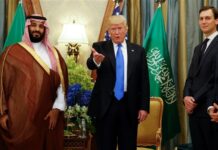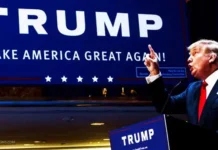
These are interesting times indeed. Many of the international relations global norms and systems that have come to be accepted as the bedrock of stability, are in flux. Consider this for example; the Security Council (UNSC) in particular is being blamed for its inability to deal with the existing and emerging conflicts. President Obama himself criticized the body for its paralysis in tackling contemporary challenges, which are mostly intrastate, not interstate, and involve non-state actors.
On the other hand, the principle of state sovereignty and integrity are increasingly in the limelight, especially as they relate to the war on terror. Pakistan itself has taken the matter of drone strikes to the United Nations, and the issue was discussed in the recent meeting between Nawaz Sharif and Obama. Annoyed at the sudden turn of events in Syria, and the surprising US-Iran thaw, Saudi Arabia has blamed the UNSC for being dysfunctional and practicing double standards, citing principally the issue of Palestine.
The just concluded European Union summit raised serious concerns and resentment on US spying on its leaders. France and Germany have gone as far as to comment that the special EU-US ties are at stake as a result. The two countries, including Brazil, are hinting at taking the matter to the UN in efforts to establish new laws on spying and intelligence sharing.
As a result of the recent understanding between Russia and the US, the risk of a wider war over Syria has been averted for the time being, and direct contact between the Iranian and American leadership was also established during the recent UN General Assembly session. As the voices for reforming the Security Council grow, the shift of balance of power in favor of Iran has presented its own unique risks and opportunities for the Middle East and South and Central Asia.
Changing Middle East
While it’s too early to tell if Iran will join the Genève II peace talks, slated to take place in late November, and in efforts to find a political solution for the civil war in Syria. Nonetheless, John Kerry has stated that if Iran did, it would have to accept a transitional government in Syria. Or in other words, Iran would have to agree that Assad has to go. The US-Iran thaw, and the prospect of Iran joining the political talks over Syria, has greatly unnerved the Gulf States, so much so that the Saudis refused to accept the coveted non-permanent rotating seat on the Security Council. The Saudis are now posturing to take the hard line and using its leverages, including oil, to protect its interests.
What It Means for AfPak?
In this respect, Pakistan stands at an interesting crossroad. The country has played a delicate balancing act in managing the Iranian and Saudi tussles playing out in the wider region. In light of the recent shift in positions, the scenarios to ponder over are how will the US-Iran thaw impact Pakistan’s approach towards Afghanistan, India, and Central Asia. Will Pakistan’s react similarly to the Saudis, at the prospect of Iran getting involved in the Afghan reconciliation? The US has usually objected the most on Iran getting involved in Afghanistan.
Moreover, what will the betterment in US-Iran relations do to the Pakistan-Saudi ties? While one hopes Saudi Arabia does not take the shift in US position in a zero-sum context, early indications do not look positive. To them, the change in US position confirms its worse kept fears. The scare was first triggered when US pulled its support from Hosni Mubarak and then backed the Morsi government, albeit reluctantly. The Saudis now seemed to have confirmed the broad western strategy is actually about removing autocratic rulers in the Arab world.
While it’s early to say how quickly and how far US-Iran détente progresses, the Saudis could pressure Pakistan, and others, to choose a side. They can always use the religious card, which supersedes any political inclinations anyone may have. Saudis could push for its own nuclear program with the assistance of Pakistan, a matter of concern in the West. Moreover, Saudis could speed up the process of Gulf unification and defense cooperation. Pakistan has previously helped Bahrain in putting down the uprising there.
The Opportunities
For Pakistan, such a situation would present several opportunities. The nation may actually exploit tension in the American ties with Saudi Arabia and Turkey, to prevent Iranian involvement in Afghanistan, if it so desire. Turkey’s decision to buy the Chinese long-range air and defense missile system has raised alarm bells from NATO and US, with both registering their protests at the move. Using its good offices, Nawaz Sharif can play an intermediary role to ease Saudi concerns, in the very same fashion Saudis did when the US-Pakistan ties had nose-dived. Fearing adverse consequence, Egypt has already offered to conduct this role between GCC and Iran.
On the other hand, and contrary to what many may think, improvement in US-Iran ties could prove to be economically productive for Pakistan. Firstly, once the matter of rates are tackled, the Iran-Pakistan gas pipeline could finally be completed. With Iran onboard, we could see a much more stable Afghanistan emerge, which in turn would have a positive impact on regional trade. Additionally, Iran could help the rapprochement of India and Pakistan. This, however, assumes delinking the region from what transpires in the Middle East, and reverting to pre-Iranian revolution and pre-Soviet occupation of Afghanistan kind of environment. This practically is not possible now.
Some rumors suggest that the ultimate aim of Saudi raucous on the Security Council performance has to do more with securing a permanent position for OIC on the reformed body. The Security Council coming under criticism from such influential voices suggests the process of reform may be about to speed up. And in this Pakistan could readily assist Saudi Arabia, worried itself about Indian efforts to secure a Security Council seat. However, for this to happen, the Shiite-Sunni tussles would have to be settled first, and this is no easy task.



